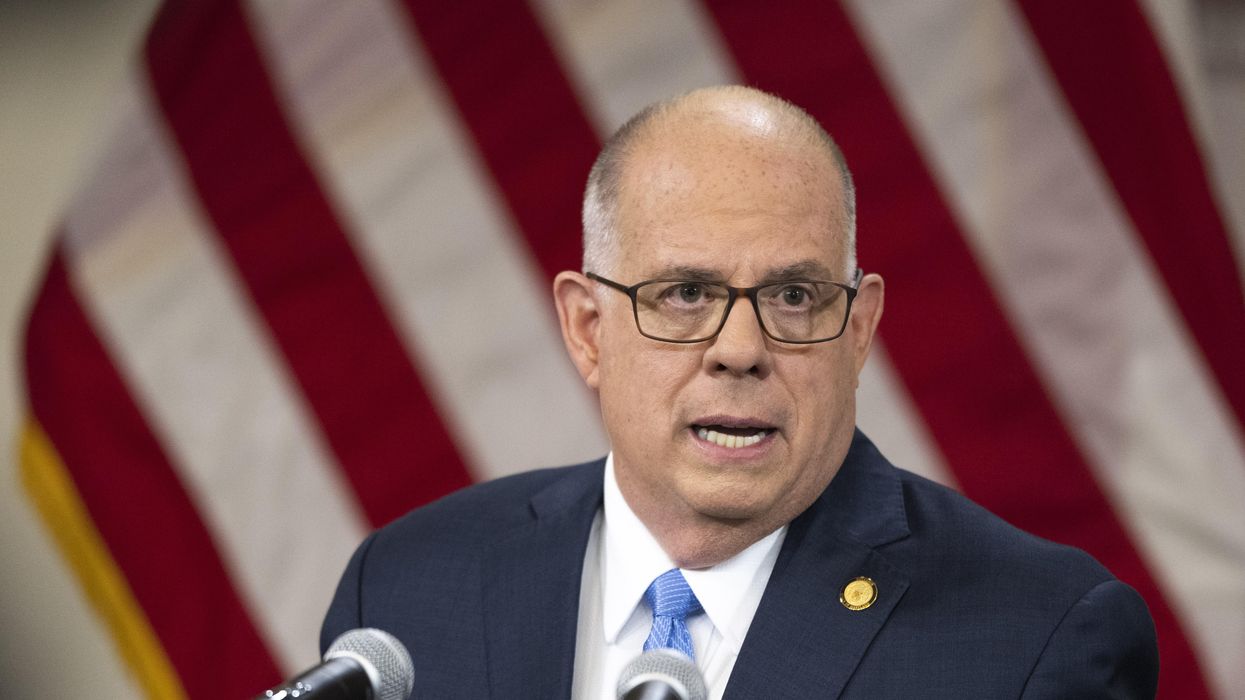Anderson edited "Leveraging: A Political, Economic and Societal Framework" (Springer, 2014), has taught at five universities and ran for the Democratic nomination for a Maryland congressional seat in 2016.
America should be moving toward a New Center. Our politics is extremely polarized, and we need a politics that respects the 30 percent to 50 percent of the country which does not align with pure versions of either of the major parties, let alone extremist right-wing and left-wing perspectives. With 43 percent of the country identifying as independents according to a recent Gallup poll, the national dialogue about our red-coat/blue-coat war remains a serious distortion.
The state of Maryland in recent years has been a laboratory of change, deliberately or unintentionally, on the part of voters and politicians. The legislature remains extremely Democratic, where both the House of Delegates and the Senate are ruled by supermajorities. Government House, the home of the governor, has been occupied by Larry Hogan, a moderate Republican. Hogan is thus not to be confused with polarized Republicans on Capitol Hill or extremely conservative Republican governors in a range of U.S. states.
Hogan has fought not to increase taxes and has been pro-business. He is one of the few Republican governors, and Republican politicians in general, who have sharply criticized Donald Trump, both as president and former president. Moreover, Hogan has compromised on budgetary and policy issues throughout his tenure as governor and set a basically calm tone for Annapolis politics.
The Democrats have pushed through major reforms on education and racial issues. They have limited power to affect the annual state budget – as they can cut but not add to the budget except via various indirect ways. Yet they have substantial power when it comes to passing bills about public policy. In their movement toward a New Center, the legislature and the governor frequently do not explicitly agree to major public policies.
The legislature overrides Hogan vetoes on important policies, like paid parental leave. And Hogan at times lets bills become laws without signing them, as he did with a renewable energy bill. In this pattern, the state has been moving in a New Centrist direction as the legislature and governor have pushed and pulled each other in directions they themselves have not always wanted to go.
Maryland, lore has it, is "America in miniature." We have: a combination of urban, suburban and rural life; the Chesapeake Bay as well as beaches, mountains, rivers, lakes and caves; a very high percent of African-American people and minorities in general; the very Democratic counties (Montgomery, Prince Georges and Howard) but the majority of the 23 counties typically vote Republican; the military bases; and now the biotech industry, Michael Phelps and Katie Ledecky.
Maryland is a microcosm of the country.
The state government is neither New York nor Alabama, neither very blue nor very red. It is in the purple category although most Democrats statewide want to return to blue territory throughout the entire government and the Republican voters are hopeful they can retain Government House.
This will be a challenge with an impressive number of candidates in Tuesday’s Democratic primary, including Peter Franchot, Tom Perez, Wes Moore and Doug Gansler. Perez is a fighting liberal and former U.S. secretary of labor; Franchot, the popular comptroller, is an Annapolis insider who is quite progressive but hardly left-wing; Moore is a dynamic outsider with a fresh perspective; Gansler is a former attorney general who has strong progressive and moderate credentials.
Whether you are a Democrat or a Republican, it is hard to argue with former Sen. Barbara Mikulski, who said that Maryland is no longer "cobalt blue."
The voters of Maryland, like the voters of Massachusetts, Connecticut and Illinois over the course of several decades, have frequently selected a Republican governor to either restrain or manage or lead the legislature. They have also elected supermajorities in both chambers of the legislature to push for progressive change on matters of education, health care, transportation and crime.
Because of its diverse population and its balance of industry and farming and tourism; because of its racial strife in Baltimore and progressive calls to fight crime and eliminate police brutality; because it is the home of former Gov. Parris Glendening's Smart Growth Movement as well as the National Anthem; and because it has been balancing progressive and conservative values the last eight years, Maryland is a model for the reshaping, renewal and redirection of America.




















Trump & Hegseth gave Mark Kelly a huge 2028 gift